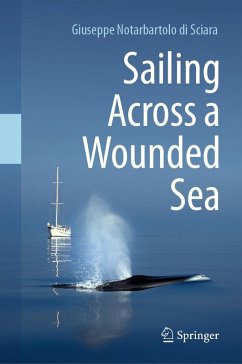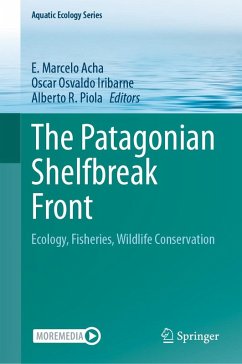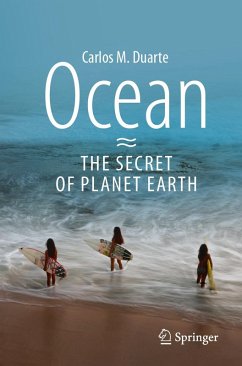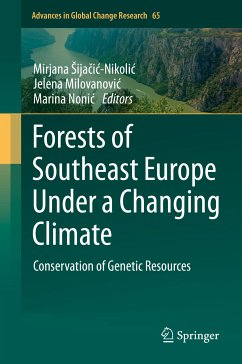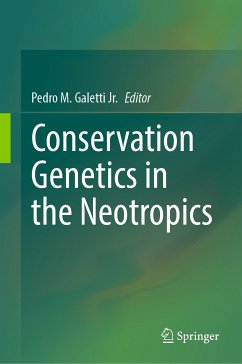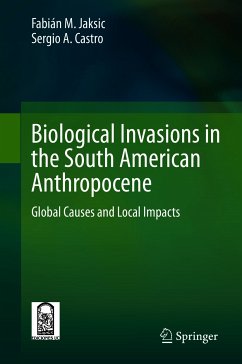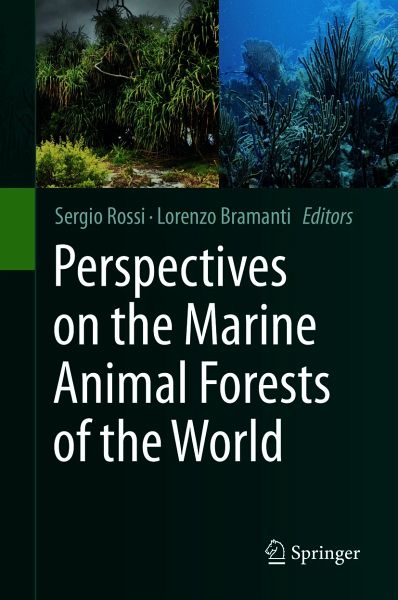
Perspectives on the Marine Animal Forests of the World (eBook, PDF)
Versandkostenfrei!
Sofort per Download lieferbar
Statt: 235,39 €**
167,95 €
inkl. MwSt.
**Preis der gedruckten Ausgabe (Gebundenes Buch)
Alle Infos zum eBook verschenkenWeitere Ausgaben:

PAYBACK Punkte
84 °P sammeln!
Marine Animal Forests (MAFs) are spread all over the world. Composed by suspension feeding organisms (e.g. corals, gorgonians, sponges, bryozoans, bivalves, etc.), MAFs constitute a vast number of marine ecosystems such as coral reefs, cold water corals, sponge grounds, bivalve beds, etc. The surface covered by these systems is prominent (at the scale of the oceans of the planet), though poorly known. In a previous book (Marine Animal Forests, the ecology of benthic biodiversity hotspots), several aspects of the MAFs were described and discussed, building the basis for a holistic approach with...
Marine Animal Forests (MAFs) are spread all over the world. Composed by suspension feeding organisms (e.g. corals, gorgonians, sponges, bryozoans, bivalves, etc.), MAFs constitute a vast number of marine ecosystems such as coral reefs, cold water corals, sponge grounds, bivalve beds, etc. The surface covered by these systems is prominent (at the scale of the oceans of the planet), though poorly known. In a previous book (Marine Animal Forests, the ecology of benthic biodiversity hotspots), several aspects of the MAFs were described and discussed, building the basis for a holistic approach with the aim of putting these shallow and deep sea ecosystems under a common umbrella. The main target of the present book is to identify and address important topics which were not covered in the previous three volumes. Bryozoans or Polychaeta, for example, are treated in this volume, as well as hydrothermal vents ecosystems and submarine caves, the chemical ecology in MAFs or the nursery effect on these ecosystems. The vastity of the MAF concept opens new insights in the biology, physiology, biodiversity of the organisms structuring these highly biodiverse ecosystems and on the dangers threatening them (such as microplastics or the role of invasive species as an impact of their trophic ecology or distribution). In a fast changing world, in which the complexity of MAFs is at risk, we propose an in-depth analysis of many aspects that may be inspirational for future research lines in marine biology and ecology.
Dieser Download kann aus rechtlichen Gründen nur mit Rechnungsadresse in A, B, BG, CY, CZ, D, DK, EW, E, FIN, F, GR, HR, H, IRL, I, LT, L, LR, M, NL, PL, P, R, S, SLO, SK ausgeliefert werden.



